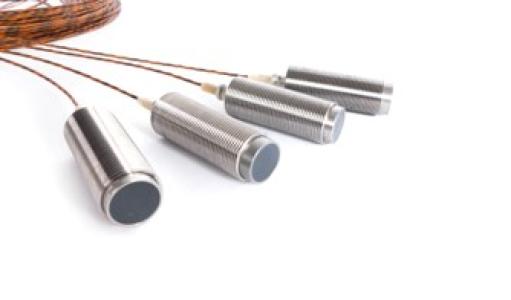Contactless Micro-switch breadboard development

The goal of this activity is to screen and perform an assessment on the state of the art technologies, including MEMS, that could provide a reliable, light mass, low cost and contactless micro-switch for space environment. A prototype development of such micro-switch will demonstrate the feasibility of the proposed approach.
Micro-switches are position sensors that provide position information once per movement or once per turn. Micro-switches are frequently used in Space mechanisms to provide telemetry or to provide positive indication of the achievement of a desired position or function (i.e. open, close, ready-to-latch, latched, end of travel, turn, reference position, etc.) for different mechanism applications like deployment mechanisms, instrument mechanisms, antenna pointing mechanisms, rotary mechanisms, etc. Current switches that rely on electro-mechanical technology are not very reliable and are sensitive to mounting orientation, to thermal gradients, to the way they are operated and have a limited number of operational cycles, which is a problem for long life mechanisms. Micro-switches relying on contact provide an additional resistive torque that has to be overcome by the mechanism actuator, having a negative impact on the torque available and the motorization margin of the actuator. As electro-mechanical micro-switches cannot sustain high mechanical loads, they should never be used as mechanical end stops. There is a small adjustment range in which the micro-switch will indicate the proper status. An incorrect assembly or a misadjustment due to in orbit thermal gradient effects can prevent the micro-switch from being actuated or can damage the devices. Micro-switches that can be adjusted to have a wider operative status range can provide a high advantage against contact devices. This function can be provided by contactless devices without affecting reliability, and without adding extra mass or any resistive torque. Therefore, there is a clear interest in developing contactless micro-switches that would provide a reliable, low cost and low mass solution, and that can operate without aging in the space environment. Different contactless position sensing technologies (hall effect, capacitive, magneto-resistive) are currently being developed in Europe and can be potential technology candidates already available for the development of the contactless micro-switch, however new technologies will be also considered during the technology assessment. The activity will start with an assessment on the potential candidate technologies and with a market assessment to obtain the main requirements needed by industry. A trade-off will be carried out to select the most promising technology. Based on the selected technology and the set of requirements obtained from the market assessment a concept design will be defined. After the breadboard is manufactured, it will be tested in a relevant environment to proof the feasibility of the concept. The main tasks of the activity are: - State of the art technology assessment - Market assessment - Technology selection and trade-off - Preliminary Concept design - Breadboard manufacturing - Breadboard testing in relevant environment - Results analysis
